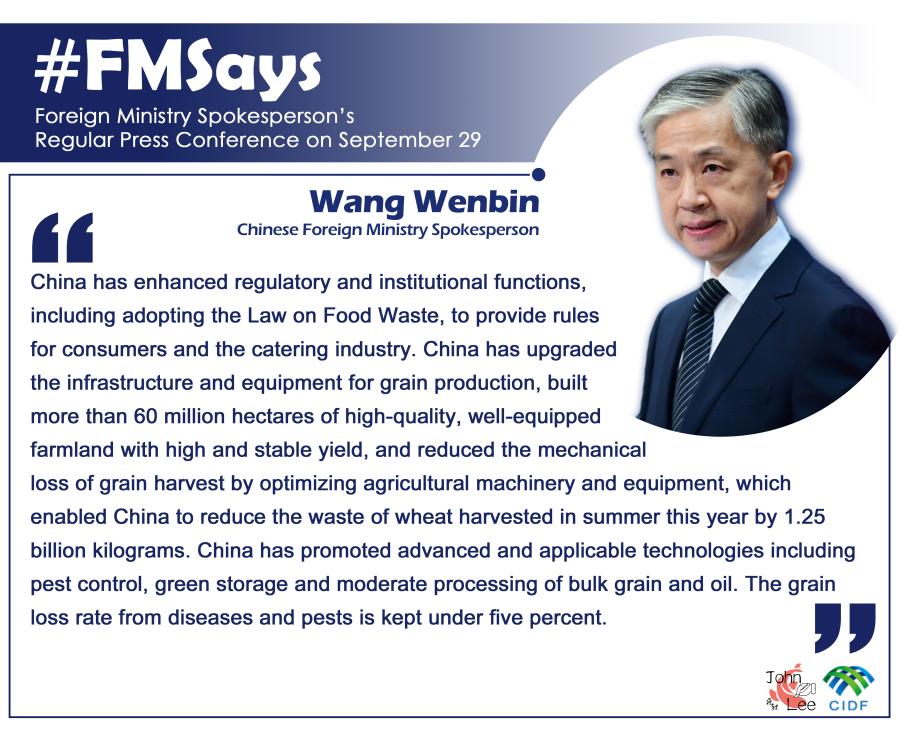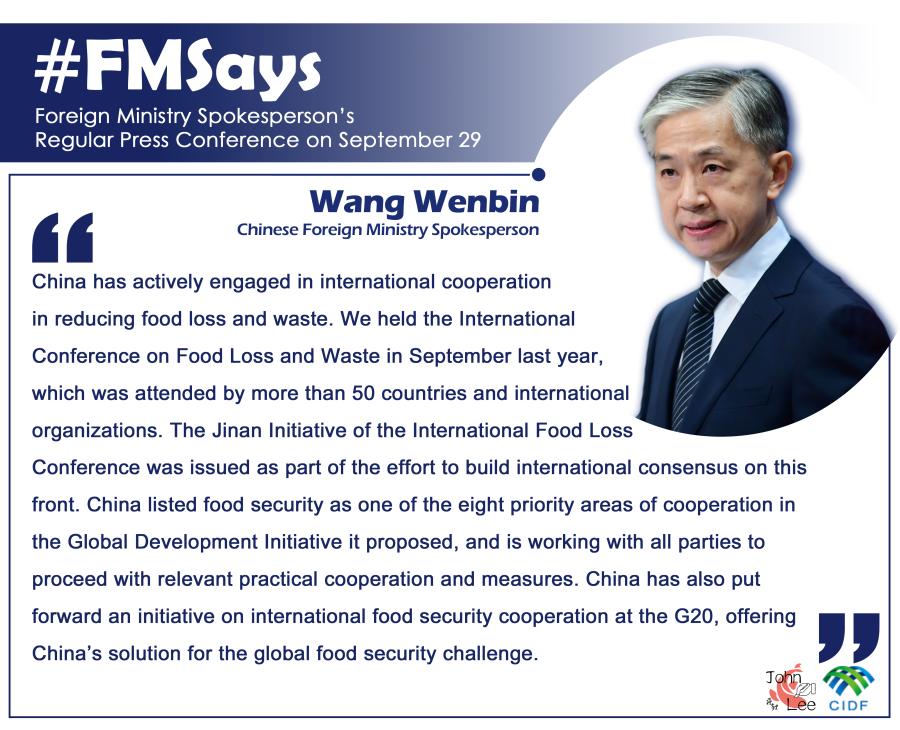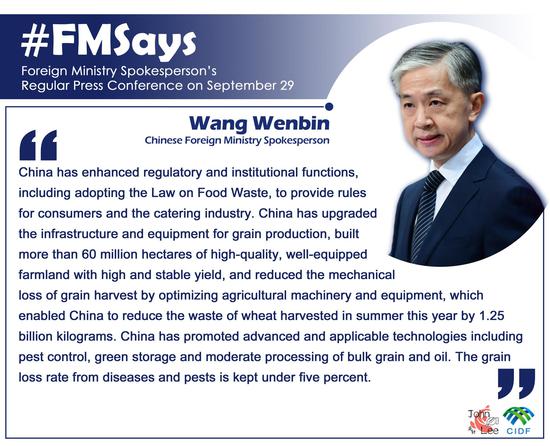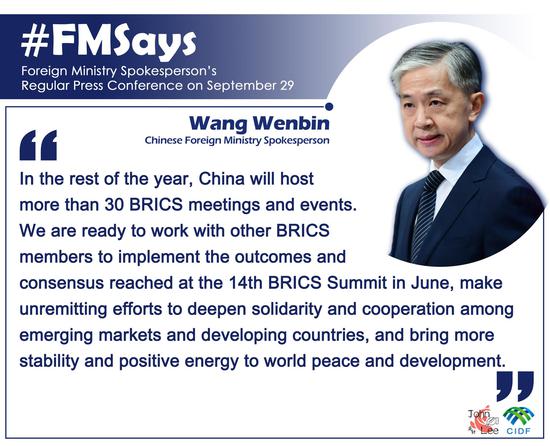
China has enhanced regulatory and institutional functions, including adopting the Law on Food Waste, to provide rules for consumers and the catering industry. China has upgraded the infrastructure and equipment for grain production, built more than 60 million hectares of high-quality, well-equipped farmland with high and stable yield, and reduced the mechanical loss of grain harvest by optimizing agricultural machinery and equipment, which enabled China to reduce the waste of wheat harvested in summer this year by 1.25 billion kilograms. China has promoted advanced and applicable technologies including pest control, green storage and moderate processing of bulk grain and oil. The grain loss rate from diseases and pests is kept under five percent.

China has actively engaged in international cooperation in reducing food loss and waste. We held the International Conference on Food Loss and Waste in September last year, which was attended by more than 50 countries and international organizations. The Jinan Initiative of the International Food Loss Conference was issued as part of the effort to build international consensus on this front. China listed food security as one of the eight priority areas of cooperation in the Global Development Initiative it proposed, and is working with all parties to proceed with relevant practical cooperation and measures. China has also put forward an initiative on international food security cooperation at the G20, offering China’s solution for the global food security challenge.?























 京公网安备 11010202009201号
京公网安备 11010202009201号
